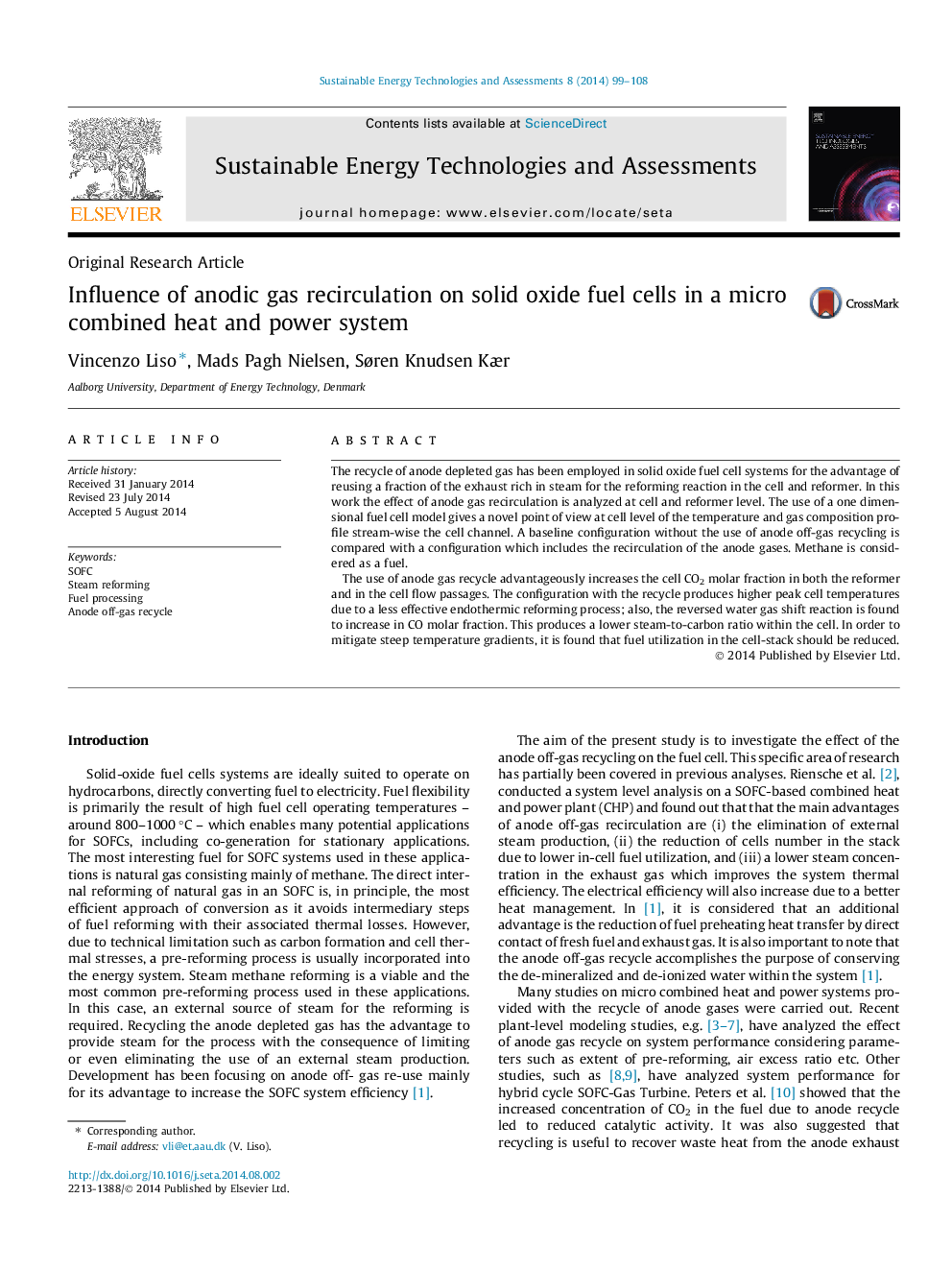| Article ID | Journal | Published Year | Pages | File Type |
|---|---|---|---|---|
| 1752682 | Sustainable Energy Technologies and Assessments | 2014 | 10 Pages |
The recycle of anode depleted gas has been employed in solid oxide fuel cell systems for the advantage of reusing a fraction of the exhaust rich in steam for the reforming reaction in the cell and reformer. In this work the effect of anode gas recirculation is analyzed at cell and reformer level. The use of a one dimensional fuel cell model gives a novel point of view at cell level of the temperature and gas composition profile stream-wise the cell channel. A baseline configuration without the use of anode off-gas recycling is compared with a configuration which includes the recirculation of the anode gases. Methane is considered as a fuel.The use of anode gas recycle advantageously increases the cell CO2 molar fraction in both the reformer and in the cell flow passages. The configuration with the recycle produces higher peak cell temperatures due to a less effective endothermic reforming process; also, the reversed water gas shift reaction is found to increase in CO molar fraction. This produces a lower steam-to-carbon ratio within the cell. In order to mitigate steep temperature gradients, it is found that fuel utilization in the cell-stack should be reduced.
